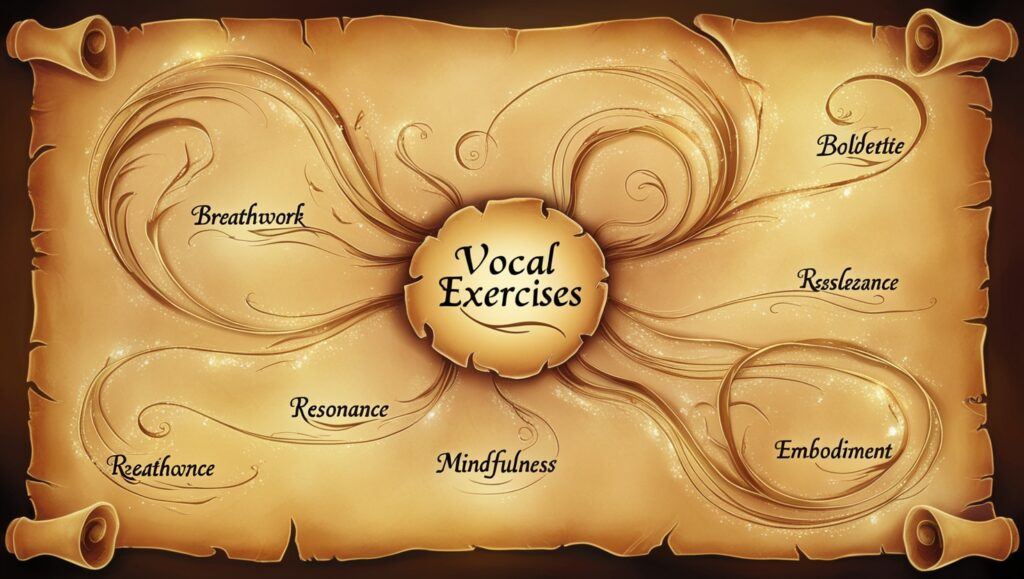Looking for more than just vocal technique? Holistic voice lessons combine functional voice training with complementary wellness practices to help you unlock your authentic voice—emotionally, physically, and energetically.
Table of Contents
ToggleWhat Are Holistic Voice Lessons?
Holistic voice lessons go beyond traditional vocal training. They focus on freeing your voice and connecting with your authentic self. It’s not just about “sounding good”—it’s about aligning your voice with your mind, body, and spirit.
This integrative approach blends: 🎤 Functional voice technique 🧠 Emotional and mental awareness 🌿 Complementary wellness practices
The Mind-Body Connection: How Perception Shapes Your Voice
Your voice is shaped by how your brain interprets the world. Through a process called the sensory input-output loop, your brain:
- Receives sensory input (sight, sound, touch, etc.)
- Makes predictions based on past experiences
- Triggers emotional and physical responses
Unpleasant memories—like stage fright or past criticism—can activate the fight-flight-freeze response, leading to:
- Muscle tension
- Shallow breathing
- Emotional shutdown
These reactions directly affect your vocal freedom and expression.
Functional Voice Training: Releasing Emotions Through Sound
Functional voice training restores healthy vocal and respiratory function by addressing:
- Physical blocks (e.g., poor posture, neck tension)
- Emotional blocks (e.g., fear, shame)
- Mental patterns (e.g., limiting beliefs)
As you train your voice, you release stored emotions and reset your nervous system, creating a ripple effect of healing and self-discovery.
Complementary Wellness Practices That Support Vocal Growth
Holistic voice training is enriched by complementary wellness modalities that support emotional regulation, energy flow, and nervous system balance.
🌬️ Clinical Hypnotherapy
- Use: Accesses the subconscious to release anxiety and emotional blocks
- Voice Benefit: Reduces vocal tension and enhances self-awareness
🌸 Aromatherapy
- Use: Uses essential oils to promote calm and relaxation
- Voice Benefit: Creates a soothing environment for vocal ease
✋ Jin Shin Energy Healing
- Use: Harmonizes life energy through gentle touch and finger holds
- Voice Benefit: Balances energy flow and supports vocal vibrancy
🎵 Neurologic Music Therapy
- Use: Uses rhythm and melody to support cognitive and emotional function
- Voice Benefit: Improves vocal control, expression, and resilience
How Wellness Practices Enhance Vocal Technique
When integrated with functional voice training, these practices support:
✅ Stress reduction → Relaxed muscles and better resonance
✅ Breath awareness → Stronger vocal support
✅ Energy alignment → Vibrant, expressive tone
✅ Postural alignment → Freer sound production
✅ Emotional release → Authentic vocal presence
✅ Nutrition and hydration → Healthy vocal tissue
✅ Visualization → Confident, embodied performance
Final Thoughts: Your Voice as a Path to Wholeness
Your voice is more than sound—it’s your energetic signature. Holistic voice lessons invite you to:
- Heal emotional wounds
- Express your truth
- Cultivate presence and confidence
When you speak or sing, your energy precedes your words. People feel your authenticity before they hear your message.
Let your voice be your compass. Let it guide you through healing, growth, and self-expression—on stage and in life.

